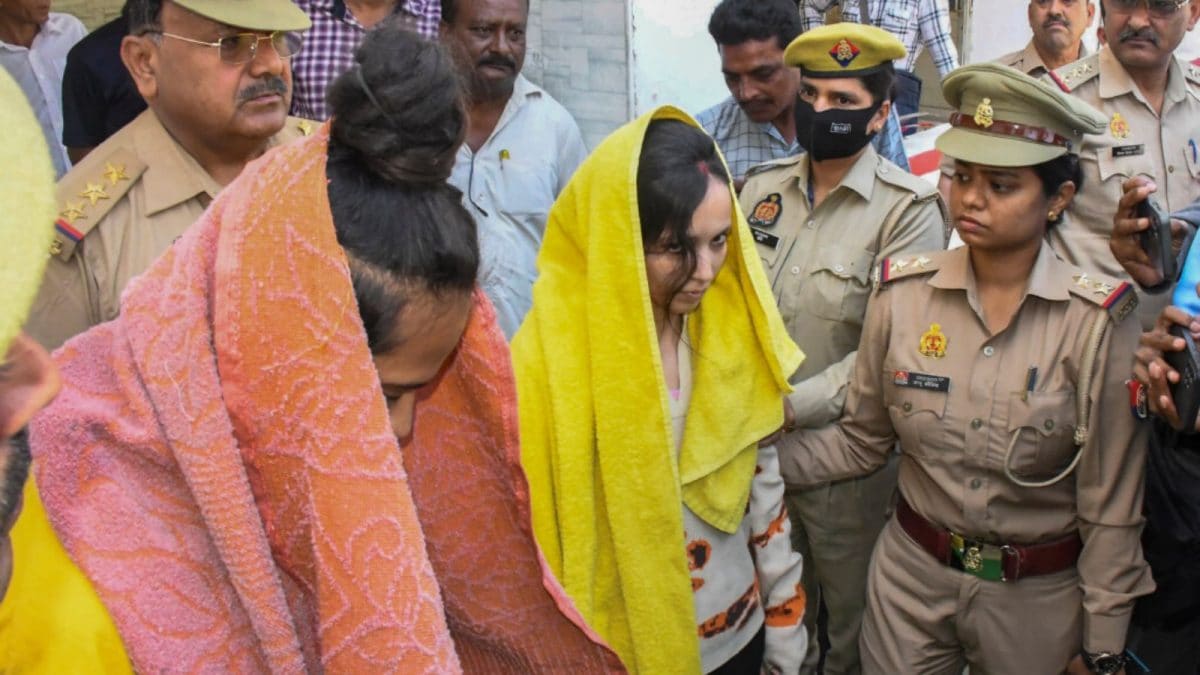 |
|
The Saurabh murder case continues to unfold with significant developments inside Meerut Central Jail. The two accused, Sahil Shukla and Muskan Rastogi, have formally requested government-appointed legal representation, adding a new layer to the ongoing legal proceedings. This request signifies their potential lack of resources or willingness to engage private counsel, potentially impacting the complexity and duration of the trial. The jail administration is grappling with these demands, ensuring the proper protocols are followed while maintaining order within the prison. Jail Superintendent Viresh Raj Sharma confirmed the requests and highlighted the inmates' fixation on television, a common form of escapism within the confines of the jail. This detail, though seemingly minor, offers a glimpse into the psychological state of the accused as they navigate their confinement and the gravity of the charges against them. The absence of visitors for both Sahil and Muskan further underscores their isolation and the potential lack of external support. Muskan's parents' explicit refusal to support her legal defense paints a stark picture of familial disownment, likely stemming from the shame and devastation caused by the alleged crime. The prison authorities' commitment to psychological rehabilitation through counselling, yoga, and meditation demonstrates an attempt to address the underlying issues that may have contributed to the accused's actions and promote their eventual reintegration into society, should they be found guilty and serve their time. The provision of meals according to jail protocols ensures their basic needs are met while reinforcing the structured environment of the prison, aiming to provide some semblance of stability in their lives amidst the chaos of their situation.
A particularly poignant aspect of the case is the emotional turmoil of Muskan's parents. Their public breakdown and advocacy for the death penalty for their own daughter reveal the depth of their pain and the perceived betrayal they feel. They attribute Muskan's downfall to Sahil's manipulative influence, portraying him as the 'greatest enemy' of their family. This highlights the complexities of relationships and the potential for individuals to be swayed by others, particularly in cases involving alleged manipulation and coercion. The police's decision to forgo custody remand and conduct interrogations within the jail premises reflects a strategic approach to manage the investigation while mitigating potential risks. The intense public outrage, demonstrated by the physical assault on the accused during their initial court appearance, underscores the volatility of the situation and the need for heightened security measures. Investigator Inspector Ramakant Pachauri's focus on uncovering the exact motive behind Saurabh's murder, including the possibility of an illicit relationship or other circumstances, and identifying any additional conspirators, demonstrates the thoroughness of the investigation. The Brahmapuri police's planned visit to the jail for further questioning further emphasizes the collaborative effort among law enforcement agencies to ensure a comprehensive understanding of the case.
The revelation of Sahil and Muskan's alleged history of drug use since 2019 adds another layer of complexity to the narrative. Their reported consumption of injectable narcotics and other substances suggests a pattern of substance abuse that may have influenced their behavior and decision-making. The description of their 'toxic bond' beginning at a school reunion and spiraling into criminal activity illustrates the destructive potential of unhealthy relationships and the importance of early intervention to address substance abuse and prevent further harm. Their alleged flight to Kasol, an area notorious for drug abuse, following the crime, further reinforces the connection between their alleged drug use and their criminal actions. Their previous travels to Manali and Kasol, presumably for similar reasons, suggest a recurring pattern of seeking out environments conducive to drug use. The chilling disclosure of Sahil's alleged involvement in occult practices introduces a disturbing element to the case. The discovery of eerie paintings and cryptic symbols in his room hints at his participation in 'Panchamundi Tantra Kriya,' a dark ritual linked to occult circles. The association of such practices with the pursuit of wealth and power, and the potential for ruin that often accompanies them, underscores the dangers of dabbling in the occult and the importance of seeking help for those who may be vulnerable to such influences.
The Saurabh murder case is a multifaceted tragedy involving alleged manipulation, substance abuse, occult practices, and the devastating consequences for all involved. The legal proceedings are ongoing, and the accused are entitled to a fair trial. However, the emotional toll on the victim's family and the accused's family is undeniable. The case serves as a stark reminder of the importance of addressing substance abuse, promoting healthy relationships, and protecting vulnerable individuals from the influence of harmful practices. The actions of the police, the jail authorities, and the courts will be crucial in ensuring justice is served and that the truth behind Saurabh's murder is revealed. The media coverage of the case, while necessary to inform the public, should be sensitive to the privacy and emotional well-being of all those affected. The long-term impact of this case on the community and the individuals involved will be significant, and it is essential that lessons are learned to prevent similar tragedies from occurring in the future. The investigation will need to determine the level of involvement for each accused, as it stands presently, both have formally requested government-appointed lawyers; this potentially means they're unable or unwilling to employ private counsel to defend them. This could change the dynamic of the trial.
Source: Saurabh Murder Case: Meerut Jail On Edge As Accused Muskan Rastogi, Sahil Shukla Demand Govt Lawyers
